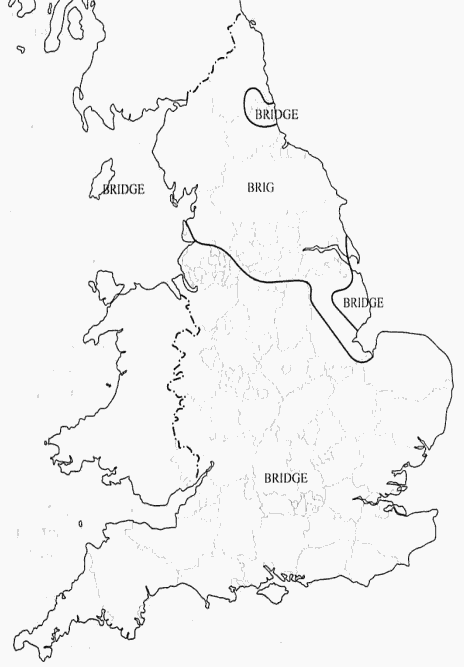言語革新がある地点から波状に伝播していくという波状理論 wave_theory について,その具体例を「#1000. 古語は辺境に残る」 ([2012-01-22-1]),「#1045. 柳田国男の方言周圏論」 ([2012-03-07-1]),「#1055. uvular r の言語境界を越える拡大」 ([2012-03-17-1]),「#1505. オランダ語方言における "mouse"-line と "house"-line」 ([2013-06-10-1]),「#1506. The Rhenish fan」 ([2013-06-11-1]) などでみてきた.波状理論の最も純粋な解釈によれば,言語革新はある地点から文字通り同心円の波紋を描きながら拡がっていくとされる.これを現実的な地理空間の用語で言い換えると,言語革新は中心地となる町や村から,東西南北あらゆる方向へ,隣り合う町や村に順次伝播していくということになる.
しかし,この純粋な波状理論には当てはまらない伝播の事例も数多く例証される.言語革新のみならず文化的流行にせよ疫病にせよ,必ずしも隣り合う町伝い,村伝いに伝播するとは限らず,遠く離れた地点へ飛び火するということがありうる.とりわけ交通網の発達した社会では,周辺の村邑を素通りして,大都市間で革新が共有されるタイミングのほうが早いことが多い.例えば,東京発信の革新は,関東外縁へ波状に広まるよりも,東海道新幹線に沿って飛び飛びに横浜,名古屋,京都,大阪へ伝わるほうが早いかもしれない.この場合,波状理論というよりは飛び石理論を想定したくなる.しかし,両理論は排他的な関係ではない.飛び石の各着地点(上の例では横浜,名古屋,京都,大阪)からは,着地の刺激によりそこを中心にやはり新しい波紋が広がりだす.したがって,波状理論のほうがより基本的なモデルであるらしいことがわかる.
飛び石理論は Chambers and Trudgill による提案だが,拙著で関連する以下の文章を書いたことがあるので引用しておきたい.
As for dialect-to-dialect change, the wave model was first proposed to describe the geographical diffusion of linguistic innovation. Then some geographically aware linguists developed an extended theory on linguistic diffusion over space. Chambers and Trudgill, for example, advanced the gravity model against the wave model to account for the path along which innovation diffuses in space (166). In this model, a linguistic innovation is likened to a stone skipping across a pond because it spreads not necessarily from a speaker or place to the immediate next but jumps from a speaker or place to another which may be geographically apart but socially connected. For example, linguistic innovation can spread from a big city to another, skipping through small towns in between. (Hotta 173)
言語革新の伝播に関する飛び石理論の具体例としては,イングランド伝統方言における「橋」を表わす bridge (標準語形)と brig の方言分布が挙げられる(以下,地図は Upton and Widdowson 154 より).前者は古英語の本来的な形態 (brycg) を継承する語形であり,後者は古ノルド語の同根語の形態 (bryggja) より影響を受けたとされる語形である.基本的な方言形の分布としては,イングランド南部の大半で bridge が,北部では brig が行われているが,北部の東岸に2箇所,それぞれ離れたエリアに,bridge が用いられている小区画がある.1つは最北の Newcastle, Sunderland, Durham を含むエリア,もう1つはより南の Humber 河口の Grimsby を含むエリアである.周囲がすべて brig である地域に,2つの小区画がポツポツと小島のように浮かんでいる印象だ.これは,南から勢力を拡げる標準語形 bridge が,波状でじわじわと北部に詰め寄っているというよりは,北部東海岸の都市から都市へと飛び石風に分布を拡げているという伝播の仕方を示唆する.そして,その北部東海岸の各都市から近郊へと,今度はおよそ波状に分布を拡げていったという具合だ.

Trudgill (129, 132) はイングランドの都市化の潮流と関連づけて,この方言形の分布を読み解いている.
The geographical patterning of the occurrence of the two words suggests that the southern and Standard English word is beginning to spread north, and in a rather interesting way. In its spread northwards, bridge has first invaded the coastal city areas of Sunderland and Grimsby, and then spread outwards again from these centres. This is just one example of the importance of urban centres in the spreading of new forms in language . . ., and of the way in which the increasing urbanization of England has contributed in this century to the loss of Traditional Dialects.
・ Hotta, Ryuichi. "The Development of the Nominal Plural Forms in Early Middle English." PhD thesis, University of Glasgow. Glasgow, November 2005.
・ Chambers, J. K. and Peter Trudgill. Dialectology. 2nd ed. Cambridge: CUP, 1998.
・ Upton, Clive and J. D. A. Widdowson. An Atlas of English Dialects. 2nd ed. Abingdon: Routledge, 2006. *
・ Trudgill, Peter. The Dialects of England. 2nd ed. Oxford: Blackwell, 2000.